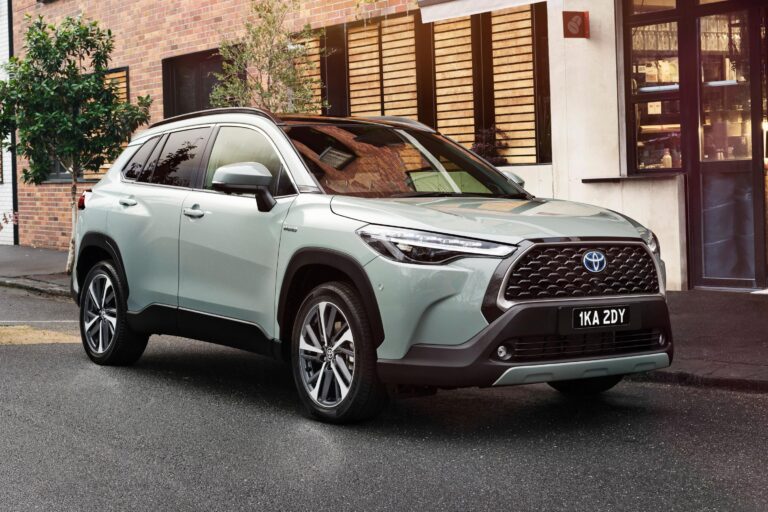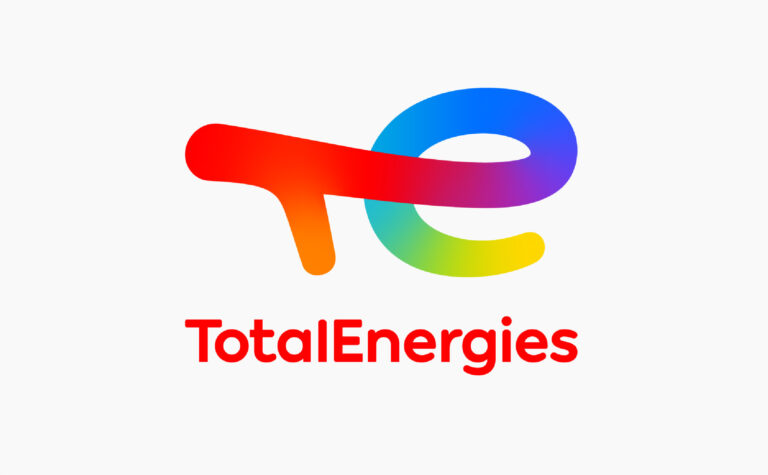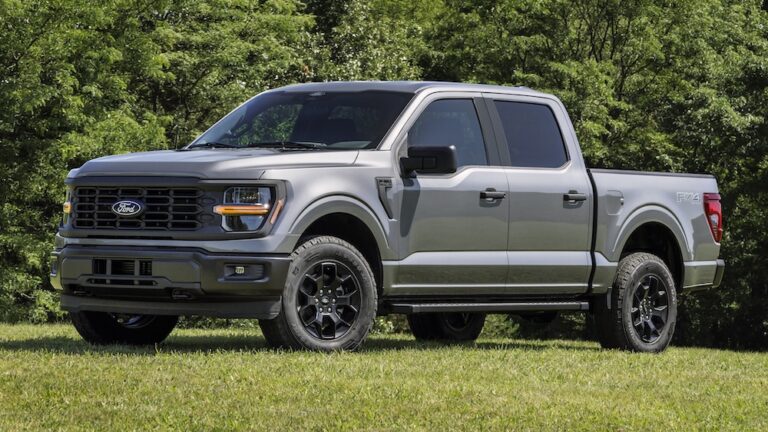1/2 Ton Diesel Trucks For Sale: Your Comprehensive Guide to Finding the Perfect Blend of Power and Efficiency
1/2 Ton Diesel Trucks For Sale: Your Comprehensive Guide to Finding the Perfect Blend of Power and Efficiency cars.truckstrend.com
Introduction: The Unsung Heroes of the Light-Duty Segment
For decades, the image of a diesel truck conjured thoughts of heavy-duty workhorses, belching smoke, and rumbling down highways with massive loads. While true for 3/4-ton and 1-ton titans, a quieter revolution has been brewing in the light-duty segment: the 1/2-ton diesel truck. These vehicles represent a compelling sweet spot, offering the superior fuel efficiency and immense low-end torque characteristic of diesel engines, all wrapped in the more manageable, comfortable, and often more affordable package of a half-ton pickup.
1/2 Ton Diesel Trucks For Sale: Your Comprehensive Guide to Finding the Perfect Blend of Power and Efficiency
The market for 1/2-ton diesel trucks for sale has steadily grown, attracting a diverse range of buyers from weekend adventurers needing to tow a camper, to small business owners hauling equipment, to daily commuters seeking better mileage without sacrificing capability. This article serves as your definitive guide to understanding, finding, and ultimately purchasing the ideal 1/2-ton diesel truck for your needs. We’ll explore their unique advantages, identify key models, provide essential buying tips, and address common concerns, ensuring you’re well-equipped for your next truck purchase.
The Allure of the 1/2-Ton Diesel: Why Choose Diesel in a Light-Duty Truck?
The decision to opt for a diesel engine in a 1/2-ton truck often comes down to a few core advantages that gasoline counterparts simply can’t match:
- Superior Fuel Economy: This is arguably the biggest draw. Diesel engines are inherently more efficient, often delivering 20-30% better miles per gallon (MPG) than comparable gasoline engines, especially on the highway or when towing. Over the lifespan of the truck, these fuel savings can be substantial.
- Massive Torque and Towing Capability: Diesel engines produce significantly more low-end torque than gasoline engines of similar displacement. This translates directly into effortless towing and hauling. You’ll experience less strain on the engine, smoother acceleration with a load, and a more relaxed driving experience when pulling heavy trailers.
- Engine Longevity and Durability: Diesel engines are built tough. Their robust construction, lower operating RPMs, and generally higher compression ratios contribute to a longer lifespan compared to gasoline engines, often lasting well over 200,000 to 300,000 miles with proper maintenance. This translates to excellent long-term value and resale potential.
- Strong Resale Value: Due to their durability, fuel efficiency, and towing prowess, 1/2-ton diesel trucks tend to hold their value exceptionally well in the used market, making them a smart investment.

While some might recall older, noisier diesels, modern 1/2-ton diesel engines are remarkably refined, quiet, and clean-burning, dispelling many of the outdated myths about diesel power.
Key Players in the 1/2-Ton Diesel Market
Historically, true 1/2-ton diesel options were limited, but in recent years, manufacturers have recognized the demand. When searching for 1/2-ton diesel trucks for sale, you’ll primarily encounter models from these major players:
- Ram 1500 EcoDiesel: This has been the most consistent and popular offering in the 1/2-ton diesel segment. Ram introduced the EcoDiesel V6 in 2014, and it quickly became a best-seller due to its impressive fuel economy (often in the high 20s MPG highway) and robust towing capacity (up to 12,560 lbs in later generations). The EcoDiesel has seen several iterations, with the third generation (starting 2020) being particularly refined and powerful.
- Ford F-150 Power Stroke: Ford entered the 1/2-ton diesel arena in 2018 with its 3.0L Power Stroke V6. Designed to compete directly with Ram, the F-150 Power Stroke offered competitive fuel economy and towing capabilities (up to 11,400 lbs). While Ford discontinued this engine option after the 2021 model year, there are still plenty of used F-150 Power Stroke trucks available.
While other trucks like the Chevy Colorado/GMC Canyon Duramax are popular diesel options, it’s important to note they are mid-size trucks, not true 1/2-tons. The Nissan Titan XD with its Cummins diesel was marketed as a "tweener" (more than a 1/2-ton, less than a 3/4-ton) and is often cross-shopped, but it falls into a slightly heavier duty class. For true 1/2-ton diesel performance, Ram and Ford are your primary targets.
What to Look For When Buying a Used 1/2-Ton Diesel
Purchasing a used 1/2-ton diesel requires a more meticulous approach than buying a gas-powered truck. Their specialized components and higher repair costs necessitate careful inspection:
- Comprehensive Service Records: This is paramount. Look for a history of regular oil changes (using diesel-specific oil), fuel filter replacements, and Diesel Exhaust Fluid (DEF) top-ups. Any gaps or missed services are red flags.
- Engine Health:
- Cold Start: Listen for excessive smoke (a little white smoke on a cold start is normal; blue or black smoke is not), unusual noises, or difficulty starting.
- Warm Engine: Check for steady idle, no knocking or ticking sounds.
- Leaks: Inspect under the hood and beneath the truck for any oil, fuel, or coolant leaks. Pay close attention to the turbocharger area.
- DPF/EGR System: These emissions systems (Diesel Particulate Filter, Exhaust Gas Recirculation) are crucial. Inquire about their history. Excessive short trips can clog DPFs. Look for check engine lights related to emissions.
- Transmission Performance: Test all gears, both in automatic and manual shift modes (if applicable). Shifts should be smooth, without clunking, slipping, or hesitation.
- Suspension and Steering: Check for worn ball joints, tie rods, shocks, or leaf springs. Drive over bumps to listen for rattles or clunks.
- Rust Inspection: Thoroughly inspect the frame, cab corners, rocker panels, and wheel wells for rust, especially if the truck comes from a region that uses road salt.
- Check for Recalls and Technical Service Bulletins (TSBs): Use the truck’s VIN to check manufacturer websites for any outstanding recalls or known issues.
- Pre-Purchase Inspection (PPI): This is non-negotiable. Have an independent, qualified mechanic (ideally one familiar with diesel engines) perform a thorough inspection before you buy. This small investment can save you thousands in potential repairs. They can check fluid conditions, run diagnostic codes, and identify underlying issues.
Benefits and Challenges of 1/2-Ton Diesel Ownership
Understanding both the pros and cons will help you make an informed decision:
Benefits:
- Exceptional Fuel Economy: As mentioned, a significant cost saving over time.
- Superior Towing & Hauling: Effortless power for your heaviest loads.
- Long-Term Durability: These trucks are built to last, offering a potentially longer lifespan than gasoline counterparts.
- High Resale Value: A strong market for used diesel trucks ensures good returns when it’s time to sell.
- Range: Better fuel economy often means a longer range between fill-ups, especially beneficial for long hauls.
Challenges:
- Higher Initial Cost: Both new and used 1/2-ton diesels typically command a higher price tag than their gasoline equivalents.
- More Expensive Maintenance: While less frequent, diesel-specific maintenance items like fuel filters, DEF, and specialized oil changes can be more costly.
- Potential Emissions System Issues: DPFs, EGR valves, and DEF systems can be prone to issues, especially if the truck isn’t driven enough or on long enough trips to allow for proper regeneration cycles. Repairs for these components can be expensive.
- Diesel Fuel Cost/Availability: While diesel fuel often offers better mileage, its price per gallon can fluctuate and sometimes be higher than gasoline. Availability can also be a minor issue in very rural areas.
- Complexity: Modern diesels are technologically advanced, meaning some repairs may require specialized diagnostic tools and expertise.
Where to Find 1/2-Ton Diesel Trucks For Sale
The market for 1/2-ton diesel trucks for sale is robust, but knowing where to look can streamline your search:
- Authorized Dealerships: Both new and used truck dealerships will carry these models. They often offer certified pre-owned (CPO) options with warranties, though at a premium.
- Online Marketplaces: Websites like AutoTrader.com, Cars.com, CarGurus.com, and KBB.com allow you to filter by fuel type, make, model, and year, making it easy to find specific diesel trucks.
- Private Sellers: Websites like Craigslist, Facebook Marketplace, and local classifieds can offer good deals, but require more caution and due diligence (always arrange a PPI).
- Specialty Truck Dealers: Some dealerships specialize in trucks and may have a wider selection of diesel models.
- Auctions: Public or dealer auctions can sometimes yield bargains, but are generally recommended for experienced buyers due to the "as-is" nature of sales.
When searching online, set up email alerts for new listings that match your criteria. Be prepared to travel a reasonable distance for the right truck, as 1/2-ton diesels can be less common in certain regions.
Pricing and Valuation Considerations
The price of a 1/2-ton diesel truck for sale varies significantly based on several factors:
- Year and Mileage: Newer trucks with lower mileage command higher prices.
- Condition: Excellent cosmetic and mechanical condition adds value.
- Trim Level and Options: Higher trim levels (e.g., Laramie, King Ranch) and desirable options (e.g., panoramic sunroof, advanced safety features, premium sound) increase the price.
- Region: Prices can fluctuate based on local demand and supply.
- Maintenance History: A well-documented service history can justify a higher price.
Utilize online valuation tools like Kelley Blue Book (KBB.com), NADA Guides, and Edmunds.com to get a realistic estimate of the truck’s value based on its specifics. Always compare prices of similar vehicles in your area. Be ready to negotiate, especially with private sellers. Don’t be afraid to walk away if the price doesn’t align with the truck’s condition and market value.
Practical Advice and Actionable Insights
- Define Your Needs: Before you start looking, clearly define your primary use case. Will you be towing heavy loads frequently, or is it mainly for commuting with occasional light hauling? This will help determine the specific model and features you need.
- Budget Beyond the Purchase Price: Factor in potential higher insurance costs (sometimes diesel trucks are more expensive to insure), increased maintenance expenses, and the cost of DEF.
- Test Drive Extensively: Don’t just take it around the block. Drive on highways, city streets, and ideally, with a trailer if you plan to tow. Pay attention to how the engine performs under various loads.
- Understand Emissions Systems: Familiarize yourself with how DPF and DEF systems work. Proper operation (e.g., allowing DPF regeneration cycles to complete) is key to avoiding costly repairs.
- Be Patient: Finding the right 1/2-ton diesel truck can take time, especially if you have specific requirements. Don’t rush into a purchase.
Price Table: Typical Used 1/2 Ton Diesel Truck Ranges (Examples)
Please note: Prices are highly variable based on year, mileage, condition, trim, features, and region. These are general estimates for well-maintained, used examples.
| Make/Model | Typical Model Years Available | Used Price Range (USD) – Low | Used Price Range (USD) – Mid | Used Price Range (USD) – High | Key Features/Notes |
|---|---|---|---|---|---|
| Ram 1500 EcoDiesel | 2014-2019 (Gen 2) | $18,000 | $25,000 | $35,000+ | 3.0L V6, strong towing (up to 9,200 lbs), excellent fuel economy (20-29 MPG). Gen 2 had some known EGR/oil cooler issues; check service history. |
| Ram 1500 EcoDiesel | 2020-2023 (Gen 3) | $30,000 | $40,000 | $55,000+ | Redesigned 3.0L V6, improved power/torque, higher towing capacity (up to 12,560 lbs), quieter and more refined. Still relatively new, so prices hold strong. |
| Ford F-150 Power Stroke | 2018-2021 | $28,000 | $38,000 | $50,000+ | 3.0L V6, competitive fuel economy (20-30 MPG) and towing (up to 11,400 lbs). Discontinued, so availability will shrink over time. |
| Nissan Titan XD Diesel | 2016-2019 (5.0L Cummins) | $20,000 | $30,000 | $40,000+ | Note: Often cross-shopped, but technically a "tweener" class. 5.0L V8 Cummins diesel. Higher towing than true 1/2-ton, but lower MPG. Discontinued. |
Frequently Asked Questions (FAQ) about 1/2 Ton Diesel Trucks
Q1: Are 1/2-ton diesels worth the extra cost?
A1: For many, yes. If you regularly tow, haul, or put a lot of highway miles on your truck, the long-term fuel savings, increased longevity, and superior towing performance can easily justify the higher initial investment. If your primary use is short commutes or very light duty, a gasoline truck might be more cost-effective.
Q2: What kind of fuel economy can I expect?
A2: Typically, 1/2-ton diesels offer highway MPG figures in the high 20s, often reaching into the low 30s under ideal conditions. City driving will be lower, generally in the high teens to low 20s. Towing heavy loads will significantly reduce MPG, but still usually outperform gasoline equivalents.
Q3: Are diesel trucks more expensive to maintain?
A3: Generally, yes. While maintenance intervals for some items might be longer, diesel-specific parts (like fuel filters, DEF, and specialized oil) are often more expensive. Emissions system components (DPF, EGR) can also lead to costly repairs if not properly maintained or if the truck is used for too many short trips.
Q4: Can I tow more with a 1/2-ton diesel than a gas one?
A4: Not always. While diesels offer superior torque for easier towing, the maximum towing capacity is ultimately determined by the truck’s overall chassis, suspension, axle ratios, and cooling systems. Often, the diesel variant of a 1/2-ton truck will have a higher towing capacity than a similarly equipped gasoline model, but always check the specific truck’s rating.
Q5: What are common problems with 1/2-ton diesels?
A5: Common issues can include problems with emissions systems (DPF clogs, DEF system failures, EGR valve issues), turbocharger issues, and injector problems. The Ram EcoDiesel Gen 2 had some known issues with its oil cooler and EGR system, which were largely addressed in Gen 3. A thorough pre-purchase inspection is vital to identify potential problems.
Q6: How long do 1/2-ton diesel engines last?
A6: With proper and consistent maintenance, 1/2-ton diesel engines are built to last significantly longer than gasoline engines, often reaching 250,000 to 350,000 miles or more. Their robust construction and lower operating RPMs contribute to this longevity.
Conclusion: The Smart Choice for the Right Buyer
1/2-ton diesel trucks for sale represent a compelling proposition for those who demand more from their light-duty pickup. They offer an unmatched combination of fuel efficiency, immense towing capability, and long-term durability that often makes them a smarter investment for specific use cases than their gasoline counterparts.
While the initial purchase price and some maintenance costs may be higher, the long-term savings at the pump, reduced strain on components, and strong resale value often offset these expenses. By understanding the key models, knowing what to inspect, and being prepared for the nuances of diesel ownership, you can confidently navigate the market and find a 1/2-ton diesel truck that will serve you faithfully for years to come, blending power, practicality, and surprising economy into one versatile package.





